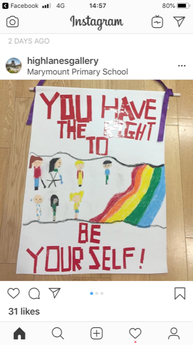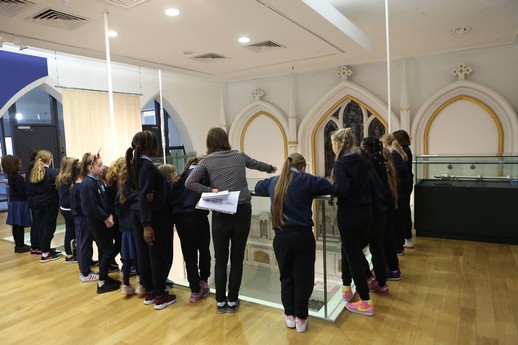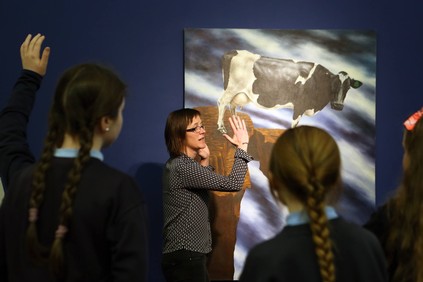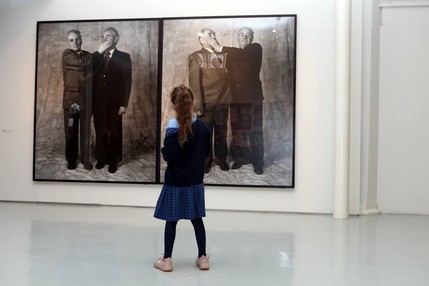School Activities - Marymount National School
Main menu
- Home
- About Us
- Parents
- Enrolment
- School Gallery
- Active School Flag
- Contact Us
School Activities
As part of the curriculum in Marymount we provide a range of activities to support the holistic development of our pupils. You can find out about some of them by reading on this page or clicking on the links.
Activities and Programmes in Marymount include Music, Sport, Incredible Years, First Steps, Reading Recovery, Maths Recovery, Friends for Life, Maths Week, Book Week, Seachtain na Gaeilge, Sports Day, Soccer & Rugby Coaching, Basketball and After School activities (These take place from time to time and we let parents know in advance).
School Completion Programme
The School Completion Programme is a Department of Education and Science programme that aims to have a significant positive impact on levels of young people's retention in primary and second level schools and on numbers of pupils who successfully complete the Senior Cycle, or equivalent. The School Completion Programme is a key component of the Department of Education and Science's strategy to discriminate positively in favour of children and young people who are at risk of or who are experiencing educational The School Completion Programme provides needs-
Supports are also provided for young people who have already prematurely left the school system.
Reading Recovery is a special programme to boost the reading and writing skills of children, who may need help in Senior Infants and First Class. If selected the child attends a trained Reading Recovery teacher for half hour lessons, one to one for a maximum of twenty weeks. Each child follows a programme specially tailored to their needs, which boosts their self-
Maths Recovery is an early intervention programme aimed at children in 1st class. Maths Recovery follows 3 strands
Number words and numerals
Counting
Grouping/ Patterns
Children arrive in school with differing levels of knowledge in Maths, this programme helps to identify children who may be at risk of falling behind. The Maths Recovery teacher works on a one to one basis with the identified children for 30 minutes each day following a programme that lasts between 10 to 12 weeks. Children are helped to discover and use strategies for working out Maths problems at their own pace. While the programme is aimed at 1st class the strategies learnt can be used at any age. In Marymount we have adapted the programme for use in Senior Infants where we do Station Teaching. This involves 4 teachers each teaching a different aspect of the programme while groups of 4/5 children move around to each station.
The Maths Recovery teacher also works in-
First Steps is a literacy resource for teachers researched and developed in Western Australia. It comprises a range of literacy strands in the areas of Reading, Writing and Speaking and Listening. It is designed for schools looking for a practical resource to improve student literacy outcomes at primary level. First Steps has an in-
In Marymount there is a First Steps environment. We have members of staff who are trained as First Steps tutors who work collaboratively to give guidelines to our staff members. Teachers use a whole school annual plan that caters for the children’s literacy needs. We promote the strands through a writer’s notice board, a large collection of books that is used solely for First Steps as well as professional development courses that are run through the summer.
Marymount School Choir plays a central part in many of our school celebrations. The choir is made up of children from senior classes in the school. Rehearsals take place regularly and the girls show great dedication in attending these to get ready for various performances throughout the year. The choir have been involved in The Cross Border Orchestra’s Peace Proms Concert on numerous occasions. They also sing in Holy Family church for school celebrations and other parish occasions and give performances elsewhere in the community from time to time. Every year our choir are involved in singing at our Confirmation and First Holy Communion ceremonies and they take great pride in providing the music for such special days in the school calendar. A school should be a place of laughter and song, and in Marymount School Choir we most certainly have plenty of both.
Music Generation
Music Generation Louth is a music education service for children and young people that provides a range of opportunities throughout the county for children and young people to learn music. It is part of Music Generation – Ireland’s National Music Education Programme, initiated by Music Network, co-
The School works with Music Generation to provide access to Music Lessons and encourage Children to take part in Music activities.
In Marymount N.S. we offer Basketball and Gaelic training to the students. We endeavour to give every child the opportunity to learn the skils of these sports, contributing to each pupil’s physical, social and personal development.
Basketball in Marymount
Over many years we have had a strong tradition of basketball in Marymount. Classes from 3rd to 6th receive coaching from Sherman Hall who is a native of Washington D.C. and has many years of coaching experience. Each year the more senior girls play friendly challenge matches against local schools, which is always an opportunity to showcase the improvements achieved. Many of our pupils excel at basketball in their secondary schools and a number have won scholarships to 3rd level.
Gaelic Football
Louth GAA Coaching and Games deliver Gaelic Football Coaching in Marymount N.S.
Over 90% of schools avail of the GAA coaching in schools programme. This involves an agreement between schools and the County Games Development Department to provide a coaching block of between 6 to 10 weeks. All lessons are designed to meet the aims of the primary school curriculum and teachers are encouraged to work together with coaches to maximise the impact for pupils.
Highlanes Gallery
The right to have a House, The right to be yourself, The right to an opinion, Don’t be scared to cry.
Some the Banners from the Crossing Lines Primary School Programme from the 3 rd & 4 th class students from Marymount National School, Drogheda.
The project saw artist Claire Halpin work with the students both in the gallery looking and discussing the art and artwork in Crossing Lines, and in the classroom.
The students will return to the gallery with the other class groups involved in the programme in early January to meet and discuss and to display their important banners.
We will be planning an exhibition of this work in the spring.


